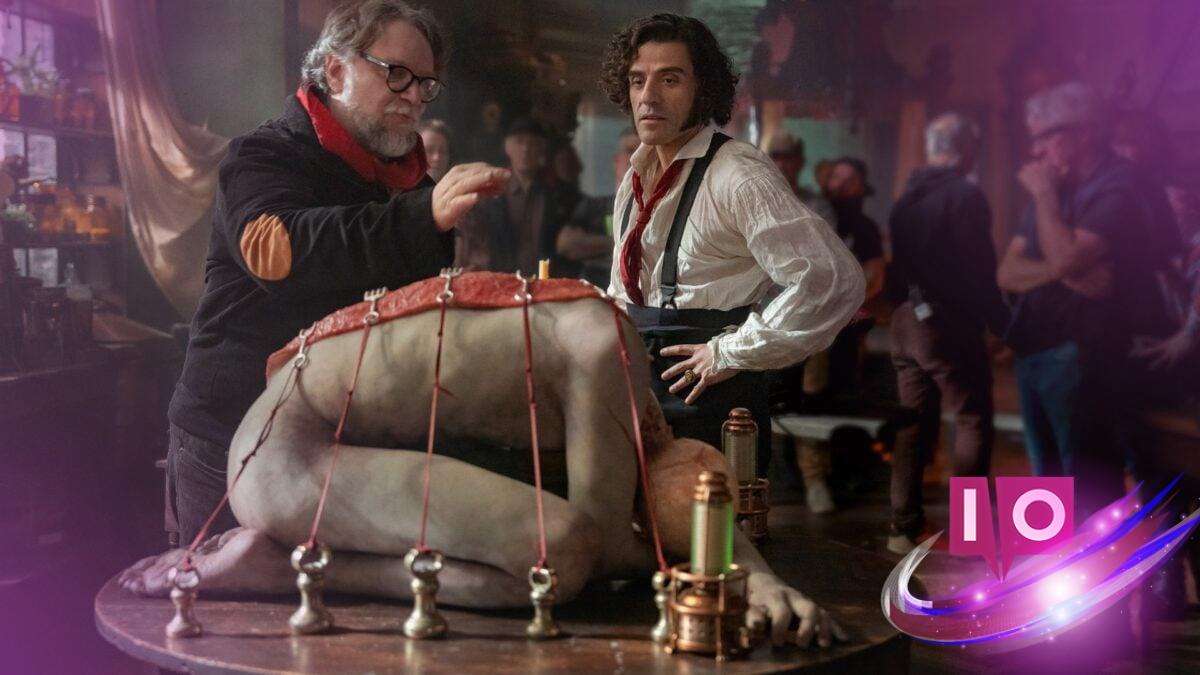In an enlightening discussion shared online by GQ, Guillermo del Toro and Oscar Isaac dove deep into the impact of their Latin heritage on their interpretation of Frankenstein. This long-anticipated collaboration is shaped not just by the horror narrative but also through the lens of their cultural backgrounds, adding layers of richness and complexity.
From the very beginning, del Toro felt a deep connection with Isaac, highlighting how their shared Latin identity influenced their artistic choices. “I think that one of the things we connected over was our Latinness,” he shared. “The shadow of the father looms differently in the Latin family.” This notion of familial relationships, especially around themes of patriarchy, plays a vital role in their rendition of the classic tale.
Isaac chimed in, reinforcing this connection by pointing out, “The patriarchal thing is so strong.” Del Toro agreed and elaborated on how that dynamic intertwined with melodrama in their storytelling. He referenced a significant influence: Pedro Infante, the iconic Mexican actor, capturing the essence of machismo that permeates much of their film. Del Toro introduced Isaac to La Oveja Negra (The Black Sheep), a 1949 classic that showcases these very traits.
In the crafting of his character Victor, Isaac drew inspiration from Infante’s commanding presence. “We used that one moment when Jacob [Elordi] comes back to ask for a bride,” he described, reflecting on how he translated Infante’s sweeping movements into Victor’s masculine energy.
Del Toro articulated his vision, emphasizing the importance of their Catholic heritage in shaping the aesthetics of the film. “Those moments for me are determined only from a Latin culture,” he explained. “The swarthy Catholicism, the intensity of emotions—it’s very Mexican.” This cultural backdrop plays a significant role in their narrative, enhancing the film’s emotional core.
Isaac offered another personal perspective, discussing his experiences as an outsider since moving to the U.S. “I felt like an outsider from the moment that I came from Guatemala,” he said. The search for personal acceptance and identity permeates Victor’s character in unique ways throughout the film.
Del Toro saw Isaac’s experiences as an actor reflecting the struggles of the character. “The Victor that I believe is fresh has swagger and sensuality,” he said, noting how Oscar’s Latino background shaped their interpretation, moving away from the conventional portrayal of Victor. “It was important for us to reclaim this character for our culture,” he added.
“A European would never make a movie like this,” Isaac reflected on the distinct approach del Toro took, using grand sets and dramatic storytelling reminiscent of classic telenovelas. This authentic style is evident in the film’s dramatic moments, which deliberately echo Hispanic cinematic traditions.
Del Toro’s unique direction asked Isaac to perform certain movements that played homage to the genre’s flair. Isaac recalled a specific direction for a climactic scene involving Mia Goth, emphasizing the importance of detail in capturing emotional nuances.
“It’s like a telenovela,” Del Toro affirmed, celebrating the cultural homage woven into their creative process. As they connected during interactions and shared experiences, both men expressed gratitude for their backgrounds informing their work. “When people say, ‘What’s Mexican about your movies?’ I say, ‘Me,’” Del Toro laughed, highlighting the authenticity of his cultural influences.
Frankenstein is now in theaters and will premiere on Netflix on November 7.
What themes do Latin culture bring to Frankenstein? Del Toro and Isaac explore complex themes of identity, family ties, and the struggles of being an outsider, enriching the narrative with their cultural perspectives.
How does the concept of patriarchy influence their interpretation of Frankenstein? Both creators emphasized that the strong influence of patriarchal structures in Latin communities adds depth to their character portrayals and emotional conflicts.
What role does melodrama play in their storytelling? Del Toro pointed out that melodrama resonates deeply with Mexican culture, evident in the heightened emotional stakes and character dynamics within the film.
How did Oscar Isaac prepare for his role as Victor? Isaac drew inspiration from classic Mexican cinema and the larger-than-life performances of actors like Pedro Infante to embody Victor’s essence fully.
In what ways does the film reclaim Frankenstein for Latino representation? Del Toro purposely chose Isaac as the lead to embody Victor, thus reimagining the character through a culturally specific lens that honors their shared heritage.
As you dive deeper into this intriguing conversation, keep exploring themes of cultural representation in the world of cinema. For more insightful content, visit Moyens I/O.
